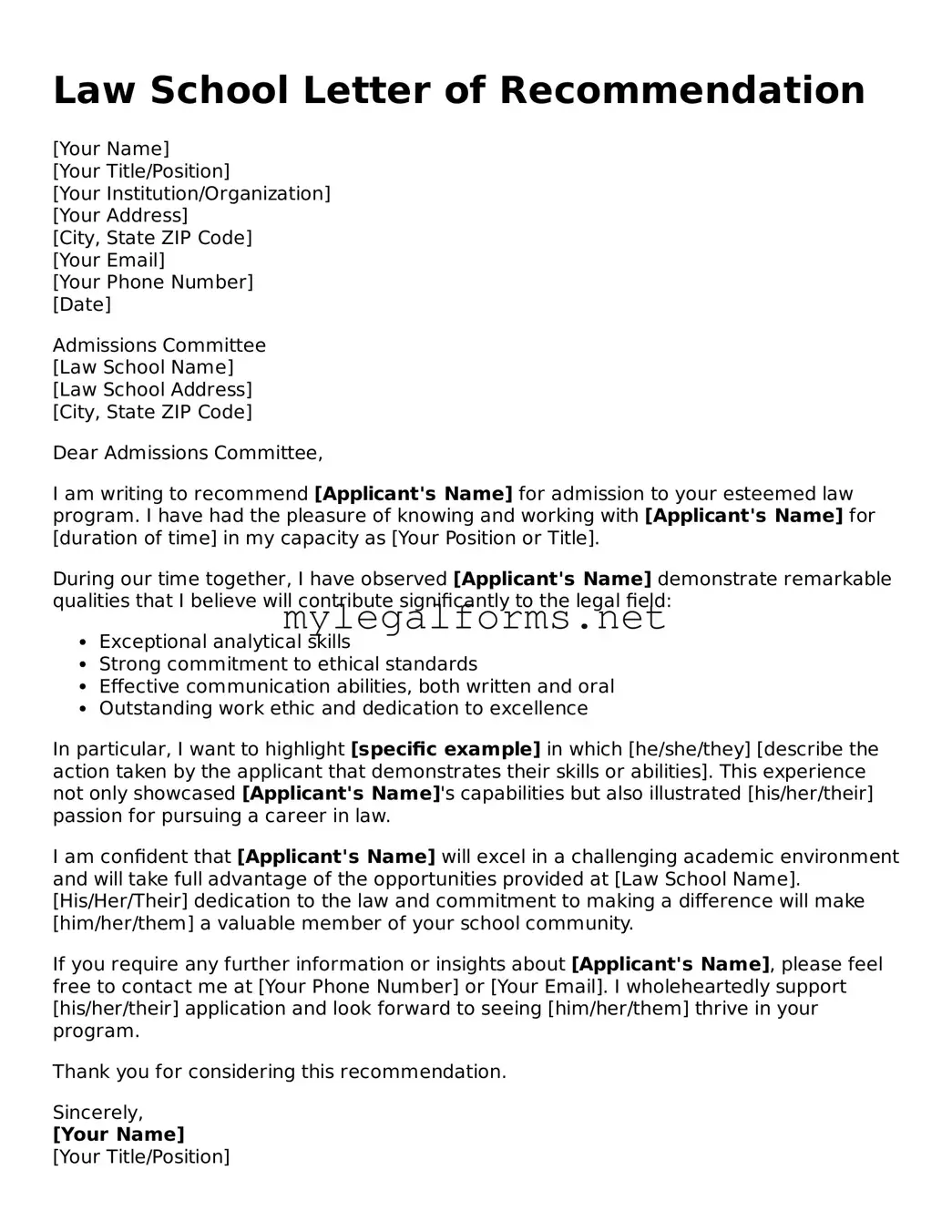Attorney-Approved Law School Letter of Recommendation Form
The Law School Letter of Recommendation form is a crucial document that allows individuals to provide insights about a candidate's qualifications and character to law schools. This form serves as a platform for recommenders to highlight the applicant's strengths and potential for success in legal education. Understanding its components can significantly enhance the effectiveness of the recommendation process.
Launch Law School Letter of Recommendation Editor

Attorney-Approved Law School Letter of Recommendation Form
Launch Law School Letter of Recommendation Editor

Launch Law School Letter of Recommendation Editor
or
⇓ PDF Form
Complete the form at your pace — fast
Finish your Law School Letter of Recommendation online and download the final version.